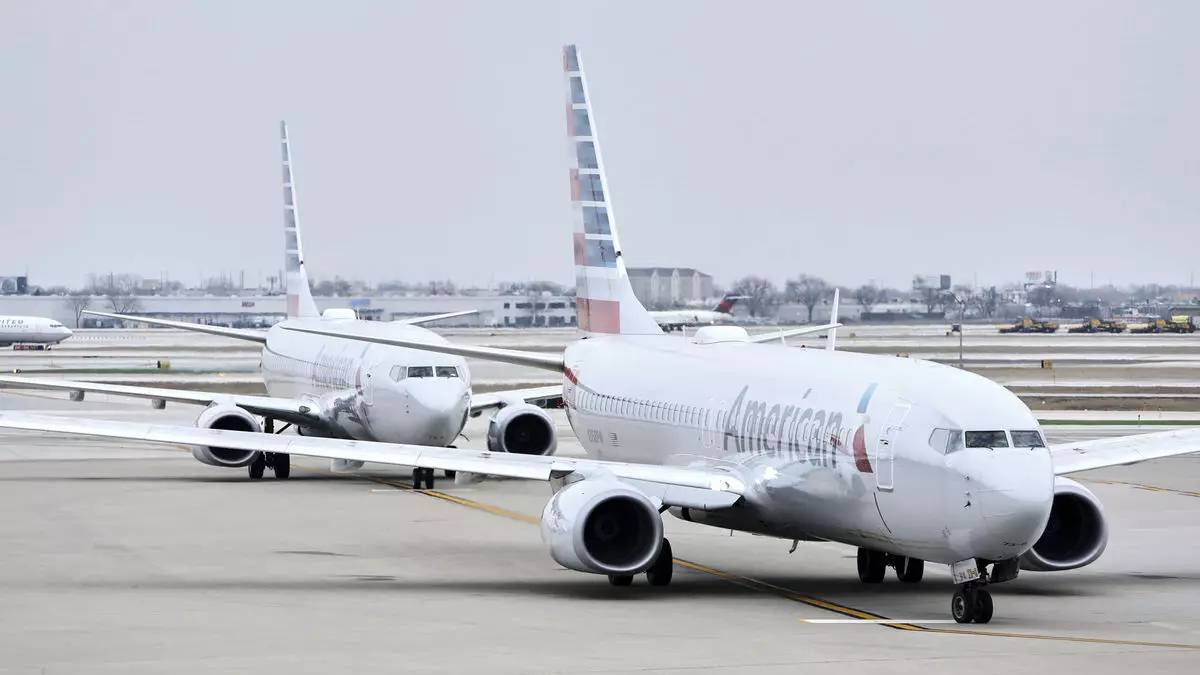In an aggressive bid to reclaim its foothold in the marketplace, American Airlines has reformed its global sales division after a recent period of re-evaluation and restructuring. The airline has set the date of October 10 to reintroduce its well-received corporate perks program, a move aimed at rebuilding relationships with corporate clients and travel agencies which suffered during a period of strategic miscalculation. The airline’s renewed focus on its corporate sales initiatives signals a shift back to conventional models, aiming not only to regain lost market share against competitors like Delta and United but also to restore confidence among its business travelers.
Scott Laurence, Vice President of Partnerships and Retailing, emphasized the airline’s understanding of the need for a strong sales framework. During a recent interview at the airline’s headquarters near Dallas-Fort Worth Airport, Laurence remarked that competitiveness in the aviation market demands an “empowered organization.” This perspective comes after the corporate sales division was abruptly shuttered in September 2023 as part of an unsuccessful 13-month experiment that aimed to minimize reliance on travel agency channels. The rationale was to drive direct bookings through new distribution capabilities (NDC), which ultimately fell short of expectations.
American Airlines’ attempt to transition away from travel agencies came to a costly conclusion, with estimates failing to materialize and resulting in an estimated revenue loss of $1.5 billion in 2023 alone. This introspection has catalyzed a return to previous strategies, with an increased focus on the successful aspects of their corporate sales initiatives. Laurence now leads the rejuvenated division alongside key stakeholders such as Chief Strategy Officer Steve Johnson, showcasing a collective commitment to rectifying earlier missteps.
Notably, the reassembled corporate sales division has expanded its workforce by 20%, bringing in 79 new sales-support staff, with continued plans to hire an additional 30 to 50 personnel. Though smaller than its pre-pandemic counterpart, the reorganized unit aims to draw inspiration from the more robust sales frameworks found in other leading airlines. The return of seasoned executives Scott Mabry and Jim Carter as consultants further fortifies the airline’s resolve to rebuild its sales capabilities.
American Airlines is set to reinstate its Corporate Experience benefits program—previously terminated as part of the airline’s misguided strategy. This program will allow corporate clients to select preferred economy seats for free, subsequently enhancing the overall travel experience through conveniences like priority check-in and boarding. This move indicates that American Airlines is now prioritizing partnerships with businesses, signaling a commitment to restoring corporate loyalty and satisfaction.
Additionally, the airline has restructured the AAdvantage Business incentive program, now rewarding companies not just for direct bookings but also for those made through travel agencies. This newfound flexibility demonstrates an acknowledgment of the critical role travel agents play in the booking process and highlights the necessity for collaboration rather than marginalization.
As American re-embraces the strengths of its corporate sales division, it has also targeted modernizing its pricing structures. The airline’s emphasis on “continuous pricing” aligns with NDC frameworks designed to attract tech-savvy travelers seeking value through dynamic fare structures. Laurence has expressed enthusiasm about this forward-thinking approach, which aims to ensure consumers consistently see the most competitive prices.
While simultaneous use of legacy Global Distribution Systems (GDS) poses limitations—due to their fixed-price coding systems—NDC’s dynamic capabilities can effectively cater to what the modern traveler demands. American is experimenting with continuous pricing strategies, believing it to be the future of booking within the airline industry.
American Airlines’ recent strategic overhaul reflects a deeper understanding of the airline market’s complexities and the missed opportunities that arose from an ill-fated move away from traditional sales channels. The industry is evolving, and American Airline’s latest initiatives represent a significant effort to adapt.
By restoring critical programs that bolster corporate relationships and embracing innovative pricing strategies, the airline is not merely aiming to reclaim its position among competitors; it’s embarking on a robust journey toward sustainable growth and customer loyalty. Travel advisors and corporate clients can expect further developments as American Airlines forges ahead, seeking to redefine its narrative and solidify its reputation in a highly competitive landscape.


Leave a Reply